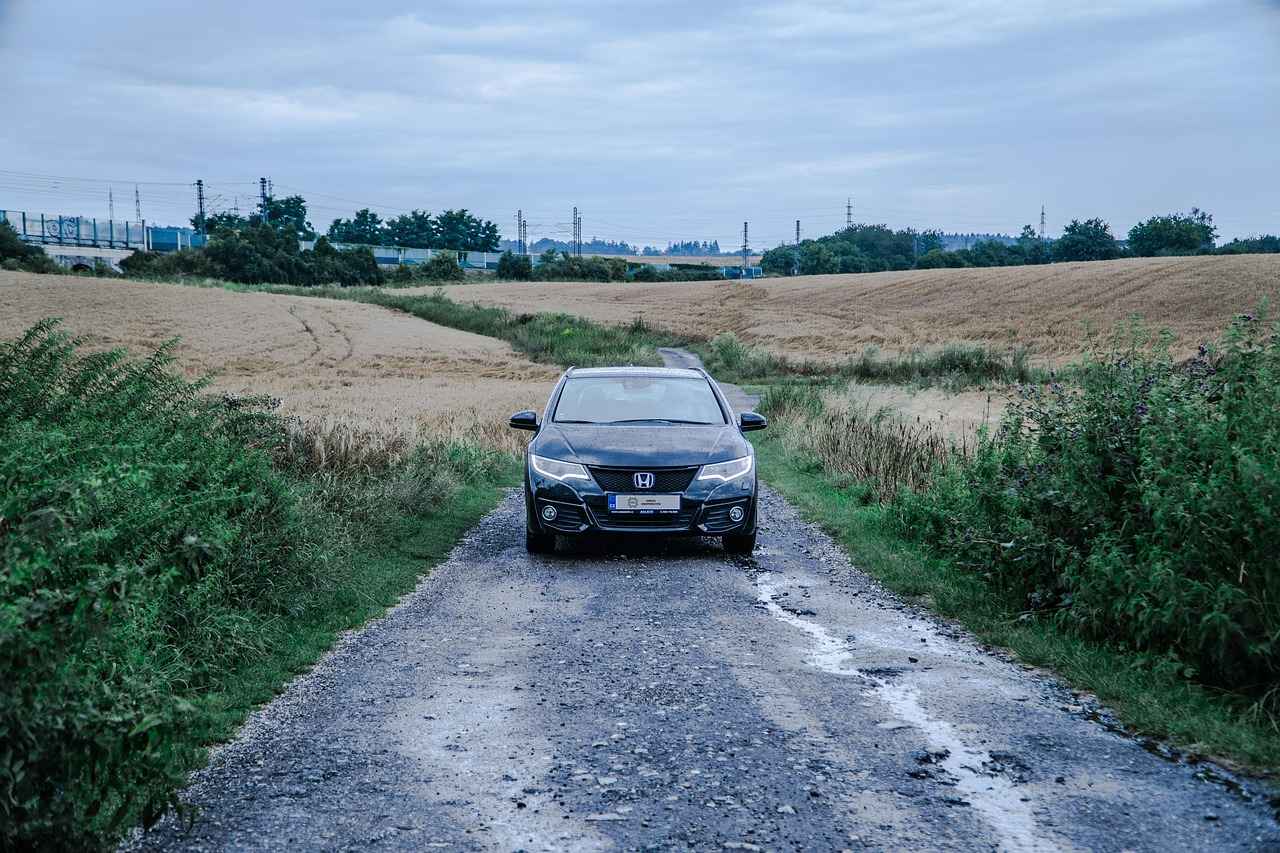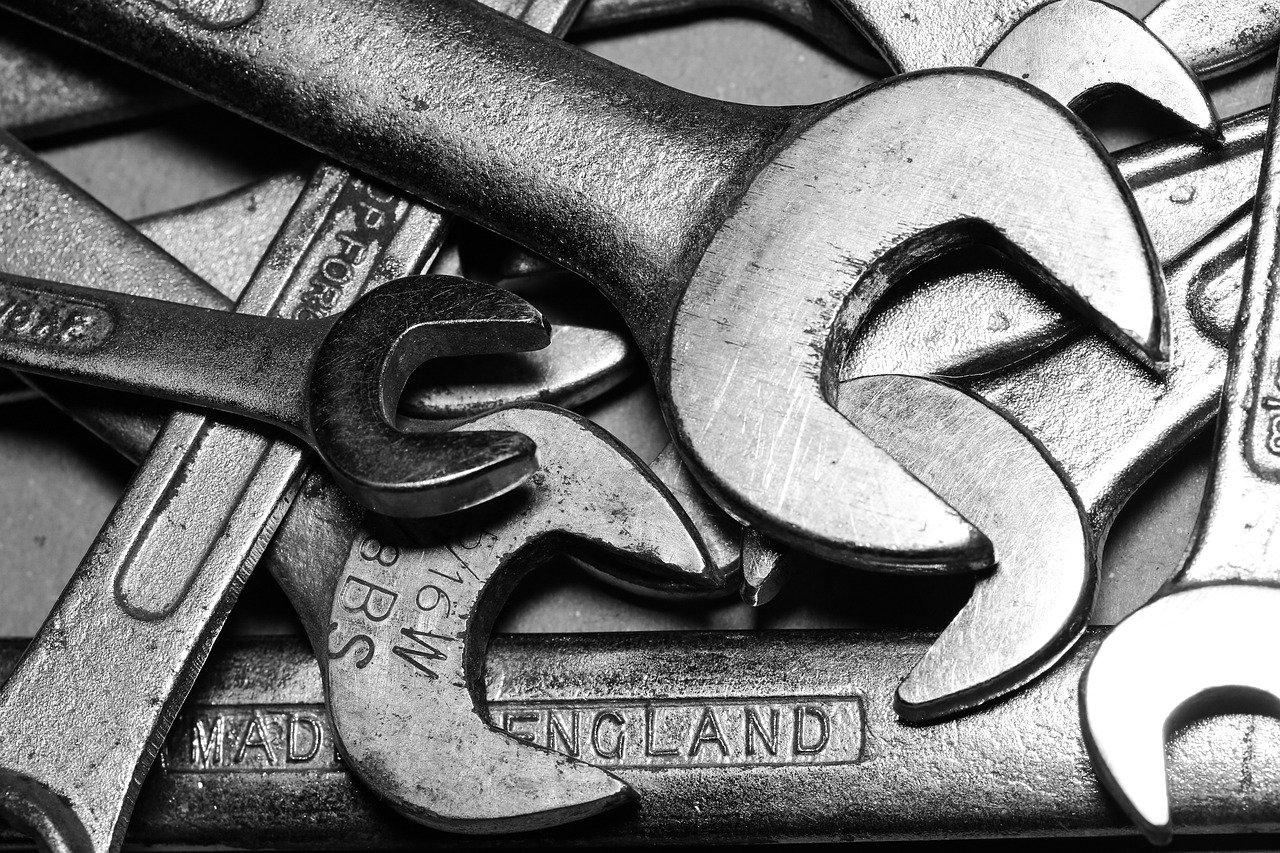The Honda Accord has long been celebrated for its reliability and performance. However, like any vehicle, certain model years have been marred by issues that prospective buyers should be aware of. This article will delve into the Honda Accord’s reliability over the years, highlighting specific model years to avoid based on common issues, recalls, and expert insights. By understanding these factors, potential buyers can make informed decisions when considering a used Honda Accord.
Identifying the problematic models can save you from expensive repairs down the line. Notably, the years 2003, 2008, and 2013 have received poor reliability ratings. Owners have reported a range of issues, from minor inconveniences to significant mechanical failures.
While the Honda Accord is generally reliable, certain years have exhibited recurring problems. Common issues include:
- Transmission failures
- Engine problems
- Electrical system malfunctions
Understanding these common issues can help buyers steer clear of models that may cause headaches.
Some Honda Accord models are notorious for engine-related issues. For instance, the 2008 model has been reported to experience excessive oil consumption, leading to potential engine failure. Symptoms to watch for include:
- Unusual engine noises
- Warning lights on the dashboard
- Decreased performance
Transmission issues can be both costly and frustrating. The 2003 and 2010 models have been flagged for significant transmission problems, including slipping and hard shifting. If you notice any of these symptoms during a test drive, it’s advisable to walk away.
Recalls can often indicate serious underlying issues. The Honda Accord has faced several recalls throughout its history, particularly in the years 2000, 2001, and 2016. These recalls often relate to safety concerns, such as:
- Airbag malfunctions
- Brake system failures
- Fuel system leaks
It is crucial for buyers to check the recall history of any used Honda Accord they consider.
While some years should be avoided, others stand out for their reliability. The 2011 and 2015 models have received high praise for their performance and durability. These models have fewer reported issues, making them a safer bet for potential buyers.
Expert reviews consistently highlight the Honda Accord as a reliable choice, though they caution against certain years. Automotive analysts recommend focusing on models from 2011 to 2017 for the best balance of reliability and features.
Selecting a used Honda Accord requires careful consideration. Here are some practical tips to ensure you choose a reliable model year:
- Research the model year for common issues and recalls.
- Request a vehicle history report to check for accidents and repairs.
- Take a thorough test drive to assess performance.
Understanding the long-term costs associated with ownership is essential. Maintenance, insurance, and repair costs can vary significantly among different model years. Generally, the 2011 and 2015 models tend to have lower overall ownership costs due to their reliability and fewer reported issues.

Which Honda Accord Models Are Most Problematic?
The Honda Accord has long been celebrated for its reliability and performance, but not all model years have lived up to this reputation. Identifying which Honda Accord models are most problematic can save potential buyers from unexpected repair costs and frustrations. This section delves into the specific model years that have garnered negative feedback based on user reviews and reliability ratings.
When considering the purchase of a used Honda Accord, it is crucial to be aware of the model years that have reported significant issues. Based on extensive research and user feedback, the following years stand out as particularly troublesome:
- 2003 Honda Accord: This model year is notorious for its transmission failures and engine-related issues. Many owners have reported problems with automatic transmission slipping and rough shifting.
- 2008 Honda Accord: Owners have frequently cited brake problems and premature wear on brake pads and rotors. Additionally, some have experienced electrical issues that can lead to costly repairs.
- 2013 Honda Accord: This model faced numerous complaints regarding its CVT transmission, which has been linked to performance issues and a lack of responsiveness.
- 2016 Honda Accord: Reports of engine stalling and problems with the infotainment system have made this model less desirable among buyers.
Understanding these problematic years is essential for making an informed decision. Why are these models particularly prone to issues? Many factors contribute to the reliability of a car, including engineering flaws, manufacturing defects, and design oversights. For instance, the 2003 model’s transmission problems were linked to a specific component that failed prematurely, leading to widespread complaints.
Additionally, the 2013 Honda Accord faced scrutiny due to its new continuously variable transmission (CVT), which, while intended to improve fuel efficiency, resulted in dissatisfaction among drivers who experienced lagging performance.
In contrast, some years have been highly praised for their reliability, such as the 2010 and 2011 models, which have received favorable reviews for their overall performance and fewer reported issues. This disparity highlights the importance of thorough research before purchasing a used vehicle.
Potential buyers should also consider checking for any recalls associated with the model years they are interested in. Recalls can indicate serious underlying issues that could affect the vehicle’s reliability and safety. For instance, the 2008 model had several recalls related to brake systems, which could lead to dangerous situations if not addressed.
To further assist potential buyers, it is advisable to review user forums and reliability ratings from trusted sources. This research can provide valuable insights into the experiences of other owners and help identify any recurring problems specific to certain model years.
In conclusion, while the Honda Accord is generally known for its durability and performance, being aware of the most problematic models can significantly impact your purchasing decision. By steering clear of the years that have reported significant issues and focusing on those with a solid reputation for reliability, you can enjoy the benefits of owning a Honda Accord without the burden of costly repairs.

What Common Issues Affect the Honda Accord?
The Honda Accord has long been celebrated for its exceptional reliability and performance. However, as with any vehicle, certain model years have been associated with specific problems that potential buyers should be aware of. Understanding these common issues can aid in making an informed decision when considering a Honda Accord.
While the Honda Accord is generally a dependable vehicle, there are several recurring problems reported by owners across various model years. Below, we outline the most significant issues that have been flagged by users and experts alike.
Engine-related issues are among the most concerning for any car owner. Some Honda Accord models, particularly those manufactured between 2003 and 2007, have reported problems such as excessive oil consumption and engine stalling. Owners have noted symptoms like:
- Engine noise: Unusual sounds can indicate internal issues.
- Warning lights: Dashboard alerts often signal engine malfunctions.
- Decreased performance: A noticeable drop in power can suggest engine troubles.
Transmission problems can lead to costly repairs, and certain Honda Accord years are notorious for these issues. Models produced between 2000 and 2003 have been frequently reported to experience transmission failure. Symptoms to watch for include:
- Slipping gears: Difficulty in maintaining speed can indicate transmission wear.
- Delayed shifting: Hesitation when changing gears can signal serious problems.
Recalls are an essential aspect of vehicle reliability, as they often address significant safety concerns. The Honda Accord has had several recalls, particularly in the years 2008 and 2017. These recalls often pertain to issues such as:
- Airbag malfunctions: Faulty airbags can pose serious safety risks.
- Brake problems: Issues with braking systems can lead to accidents.
Some recalls have had a profound impact on the Honda Accord’s reliability. Notably, the 2016 model faced a recall due to a potential issue with the fuel pump, which could lead to engine stalling. Understanding these recalls is crucial for any prospective buyer.
While some years are fraught with issues, others stand out for their reliability. The 2015 and 2018 Honda Accord models have received high praise for their performance and durability. These models have fewer reported issues and have been recognized for their engineering improvements.
Factors contributing to a model’s reliability include engineering advancements and design modifications. The 2015 Honda Accord, for instance, benefitted from a redesign that addressed many of the issues found in earlier models, resulting in improved performance and fewer complaints from owners.
Experts consistently highlight the Honda Accord as a reliable choice, particularly in the years 2015 and 2018. Reviews from automotive analysts emphasize the importance of checking vehicle history and understanding common issues associated with specific model years.
When selecting a used Honda Accord, it’s crucial to perform thorough research. Look for models with fewer reported issues and consider obtaining a vehicle history report to check for past recalls and repairs.
A test drive can reveal much about a vehicle’s condition. Pay attention to:
- Engine performance: Listen for any unusual sounds.
- Transmission response: Ensure smooth shifting between gears.
Before purchasing, verify the recall status of the vehicle. You can do this by checking the National Highway Traffic Safety Administration (NHTSA) website or asking the dealer for detailed service records.
In summary, while the Honda Accord is often a reliable vehicle, being aware of the common issues associated with specific model years can help potential buyers avoid costly repairs and ensure a satisfactory ownership experience.
Engine Problems in Specific Model Years
The Honda Accord has long been celebrated for its reliability and performance. However, certain model years have garnered a reputation for significant engine-related issues. Understanding these problematic years is crucial for potential buyers, as it can save them from costly repairs and unforeseen complications. Below, we delve into the specific model years that have been flagged for serious engine failures and the symptoms to watch for.
When considering a used Honda Accord, it’s wise to be aware of the years that have reported notable engine failures. The following model years are particularly notorious:
- 2003 Honda Accord: This year is infamous for its V6 engine issues, where owners have reported problems with the engine stalling unexpectedly. Symptoms include rough idling and loss of power.
- 2008 Honda Accord: Many users have experienced excessive oil consumption in this model. Owners noted that they had to add oil frequently between changes, which can lead to significant engine damage if not addressed.
- 2010 Honda Accord: This model year has been linked to engine knocking sounds, which could indicate serious internal damage. Drivers reported that the noise often preceded engine failure.
- 2012 Honda Accord: This year faced complaints about engine misfires and rough acceleration, leading to decreased performance and potential safety hazards.
Recognizing the symptoms of engine issues can be invaluable for Honda Accord owners. Here are some common signs to watch for:
- Check Engine Light: If this light illuminates on your dashboard, it could indicate various engine problems that require immediate attention.
- Unusual Noises: Sounds such as knocking, pinging, or grinding can signal serious engine malfunctions.
- Decreased Performance: If you notice a significant drop in acceleration or power, it may be time to investigate further.
- Oil Leaks: Any visible oil spots under the vehicle can indicate leaks that may lead to engine damage.
Engine problems can lead to a range of issues, impacting not only the vehicle’s performance but also its resale value. Owners may face high repair costs, and in some cases, persistent issues can lead to a complete engine replacement. It’s essential to consider these factors when evaluating a used Honda Accord.
If you’re in the market for a Honda Accord, it’s crucial to do your research. Here are some tips:
- Check the Vehicle History: Obtain a report to see if the car has had any major repairs or recalls.
- Ask About Maintenance Records: A well-maintained vehicle is less likely to have engine issues.
- Test Drive: Pay attention to how the engine sounds and performs during a test drive.
By being aware of these engine problems and their implications, potential buyers can make informed decisions and avoid the pitfalls associated with these specific Honda Accord model years.
Transmission Troubles: Which Years to Watch Out For?
Transmission issues can be among the most frustrating and expensive problems a vehicle owner may face. For potential buyers of the Honda Accord, understanding which model years have been flagged for these issues is crucial. This section provides an overview of the Honda Accord’s transmission reliability, highlighting specific years that have reported significant problems.
Transmission troubles can lead to severe repair costs and can significantly affect the vehicle’s performance. Issues such as slipping gears, delayed shifting, and complete transmission failure can leave drivers stranded and facing hefty bills. Knowing which model years are notorious for these problems can help buyers make informed decisions.
Based on various user reviews and reliability ratings, certain Honda Accord model years have been identified as having notable transmission issues. Here’s a breakdown of the years to watch out for:
- 2003 Honda Accord: Many owners reported problems with the automatic transmission, including harsh shifting and failure to engage.
- 2004 Honda Accord: This model year saw a significant number of complaints regarding transmission slipping and complete failure, often requiring costly replacements.
- 2005 Honda Accord: Similar issues persisted, with reports of transmission fluid leaks and erratic shifting patterns.
- 2008 Honda Accord: Some drivers experienced delayed engagement and shifting problems, raising concerns about the overall reliability of the transmission.
- 2013 Honda Accord: This model has been flagged for transmission issues, particularly with the continuously variable transmission (CVT), leading to complaints about lack of power and stalling.
Recognizing the symptoms of transmission problems early can save you from extensive repairs. Here are some signs to watch for:
- Unusual noises: Grinding or whining noises can indicate serious issues.
- Slipping gears: If the car unexpectedly changes gears or slips out of gear, it’s a warning sign.
- Fluid leaks: Puddles of red or brown fluid under the vehicle can signify transmission fluid leaks.
- Warning lights: Dashboard warning lights, particularly the check engine light, should never be ignored.
For those considering purchasing a Honda Accord, conducting a thorough inspection is essential. Here are some tips:
- Check the service history: Ensure that the previous owner maintained regular transmission service.
- Test drive: Pay attention to how the vehicle shifts during the drive. Any hesitation or harshness should raise red flags.
- Consult with a mechanic: A pre-purchase inspection by a qualified mechanic can help identify potential issues.
In summary, being aware of which Honda Accord model years have transmission troubles allows buyers to make informed choices. By recognizing the signs of potential issues and taking proactive steps, you can avoid costly repairs and ensure a more reliable driving experience.

How Do Recalls Impact Honda Accord Reliability?
The reliability of a vehicle is often a major concern for potential buyers, and recalls can serve as a significant indicator of underlying issues. In the case of the Honda Accord, a model known for its overall reliability, certain years have experienced a higher frequency of recalls, raising questions about their long-term dependability.
Recalls typically arise due to safety concerns or defects that could affect the vehicle’s performance. When a manufacturer issues a recall, it often indicates that a particular model may have serious flaws that could lead to safety hazards or operational failures. For the Honda Accord, examining its recall history helps potential buyers understand which years might pose significant risks.
Several model years of the Honda Accord have been flagged for major recalls. Notably, the years 2008, 2013, and 2014 are often cited. In 2008, the recall was primarily due to issues with the brake system, which could lead to reduced braking performance. The 2013 model faced recalls related to potential problems with the airbags, while the 2014 model had issues concerning the power steering system. Each of these recalls not only highlights specific safety concerns but also raises questions about the overall reliability of these vehicles.
For current owners or those considering purchasing a used Honda Accord from these years, it is essential to understand how recalls can impact their experience. Recalls often lead to significant inconveniences, such as:
- Time Off the Road: Owners may need to take their vehicles to dealerships for repairs, which can result in time without a vehicle.
- Cost Implications: While recalls are typically covered by manufacturers, the associated costs for transportation or rental vehicles can add up.
- Resale Value: Vehicles with a history of multiple recalls may see a decrease in resale value, as potential buyers may be wary of the associated risks.
If you own or are considering purchasing a Honda Accord from a recall-affected year, it is crucial to take proactive steps:
- Check Recall Status: Use the National Highway Traffic Safety Administration (NHTSA) website to check if your vehicle has any outstanding recalls.
- Verify Repairs: Ensure that any recalls have been addressed and repaired by a certified Honda dealer.
- Stay Informed: Keep abreast of any new recalls or safety notices that may arise after your purchase.
Experts suggest that while recalls can indicate potential issues, they do not necessarily define a vehicle’s overall reliability. Many Honda Accord models continue to perform well even after recalls, provided that the necessary repairs have been completed. The key takeaway is that potential buyers should not be deterred by recalls alone but should consider the entire service history of the vehicle.
In conclusion, understanding the implications of recalls is essential for assessing the reliability of the Honda Accord. By being informed and proactive, buyers can make educated decisions that align with their safety and performance expectations.
What Are the Most Significant Recalls for Honda Accord?
The Honda Accord has long been celebrated for its reliability and performance. However, certain model years have faced significant recalls that potential buyers should be aware of. Understanding these recalls can help you make an informed decision when considering a used Honda Accord. Below, we delve into the most significant recalls affecting the Honda Accord, particularly focusing on the years that are best avoided.
Some recalls can lead to major safety concerns. The following details the most significant recalls affecting the Honda Accord, particularly in the years to avoid:
| Model Year | Recall Issue | Description |
|---|---|---|
| 2008 | Airbag Defect | Defective airbags that may not deploy in a crash, increasing the risk of injury. |
| 2013 | Power Steering Failure | Loss of power steering assist, making the vehicle difficult to steer. |
| 2015 | Fuel Leak | Fuel leakage that could lead to a fire hazard if not addressed. |
| 2016 | Transmission Issues | Potential for the transmission to slip, leading to loss of power and control. |
Recalls are significant because they often indicate underlying issues that can affect the vehicle’s overall reliability and safety. In the case of the Honda Accord, the recalls listed above not only impact the vehicle’s functionality but also pose serious risks to driver and passenger safety. For instance, the airbag defect from 2008 could prevent the airbag from deploying, which is critical during an accident.
Before purchasing a used Honda Accord, it is essential to check for any outstanding recalls. Here are some steps you can take:
- Visit the National Highway Traffic Safety Administration (NHTSA) website.
- Enter the vehicle identification number (VIN) to see if there are any active recalls.
- Contact a local Honda dealership for detailed recall history and repairs.
Experts recommend that potential buyers pay close attention to recall history when considering a used Honda Accord. A vehicle with multiple recalls may indicate a pattern of manufacturing issues, which can lead to costly repairs down the line. Additionally, addressing recalls promptly can prevent safety hazards and enhance the vehicle’s longevity.
In conclusion, while the Honda Accord is known for its reliability, certain model years come with significant recalls that should not be overlooked. By staying informed and conducting thorough checks, you can ensure that your investment in a Honda Accord is a sound one.

Which Honda Accord Years Are Considered the Best?
The Honda Accord has long been celebrated for its durability, comfort, and overall performance. However, not all model years are created equal. While some years are best avoided due to various issues, others shine brightly in terms of reliability and owner satisfaction. This section focuses on highlighting the Honda Accord models that have received high praise from experts and owners alike.
When considering a used Honda Accord, it is crucial to identify which model years have consistently demonstrated dependability and performance. According to automotive experts and owner feedback, several model years stand out:
- 2013 Honda Accord: This model year is often lauded for its excellent fuel economy, spacious interior, and advanced safety features. It received high marks in reliability ratings and is equipped with a robust engine.
- 2015 Honda Accord: The 2015 model is praised for its smooth ride and high-quality interior. It also features a user-friendly infotainment system and has been known for its low maintenance costs.
- 2016 Honda Accord: This year saw improvements in technology and safety, making it a favorite among families. The addition of advanced safety features like lane departure warning and forward collision warning has boosted its reliability reputation.
- 2018 Honda Accord: The redesign in 2018 brought a more sporty look and enhanced performance. Owners appreciate its powerful engine options and spacious trunk, making it a practical choice for everyday use.
These model years have consistently received positive reviews from both experts and owners, making them ideal choices for potential buyers seeking reliability.
Understanding the factors that contribute to a model’s reliability is crucial. Several elements play a role in making specific Honda Accord years stand out:
- Engineering Improvements: Over the years, Honda has made significant engineering advancements that enhance the overall performance and reliability of the Accord.
- Quality Control: Increased attention to quality control during manufacturing has resulted in fewer defects and recalls in certain model years.
- Owner Feedback: Continuous feedback from owners has led to improvements in design and technology, making newer models more dependable.
These factors have contributed to the overall reputation of the Honda Accord as a reliable vehicle, particularly in the highlighted model years.
Expert reviews and automotive analysis provide valuable insights into the reliability of the Honda Accord. Many automotive experts recommend the aforementioned model years due to their strong performance metrics and owner satisfaction ratings. Publications like Consumer Reports and J.D. Power consistently rank these models highly, citing their low incidence of major repairs and high resale value.
In summary, while some years of the Honda Accord should be avoided, the highlighted models offer a blend of reliability, performance, and owner satisfaction. By focusing on these years, potential buyers can make informed decisions, ensuring they choose a vehicle that meets their needs without the burden of unexpected repairs.
Why Are Certain Years More Reliable?
When considering the reliability of the Honda Accord, it is essential to recognize that certain model years have been engineered with significant improvements and design changes. These enhancements contribute to a more dependable driving experience, making them standout choices for potential buyers. In this section, we will explore the various factors that lead to the increased reliability of specific Honda Accord years.
- Engineering Enhancements: Over the years, Honda has continuously refined its engineering processes. For instance, certain model years have benefited from advancements in engine technology, leading to improved fuel efficiency and reduced emissions. These enhancements not only make the vehicle more environmentally friendly but also contribute to its overall longevity.
- Improved Safety Features: Safety is a critical aspect of any vehicle’s reliability. In recent years, Honda has incorporated advanced safety features such as collision mitigation braking systems, lane-keeping assist, and adaptive cruise control. These features not only protect drivers and passengers but also enhance the vehicle’s reliability by preventing accidents and reducing the likelihood of costly repairs.
- Quality Control Measures: Honda has implemented stricter quality control measures in its manufacturing processes. This commitment to quality ensures that components are built to last, reducing the chances of defects that could lead to mechanical failures. As a result, certain model years have fewer reported issues, making them more reliable choices.
- User Feedback and Improvements: Honda actively listens to customer feedback and uses it to inform design changes. By addressing common complaints and issues reported by owners, the company has been able to make targeted improvements that enhance the reliability of specific model years.
For example, the 2013 Honda Accord received high praise for its reliability, thanks to a combination of a robust engine, improved transmission systems, and enhanced safety features. Similarly, the 2016 model stands out due to its excellent build quality and advanced technology, making it a favorite among consumers seeking a dependable vehicle.
Another factor contributing to the reliability of certain Honda Accord years is the design philosophy employed by Honda. The company focuses on creating vehicles that not only perform well but also require less maintenance over time. This approach results in fewer trips to the mechanic and a more enjoyable ownership experience.
In summary, understanding the reasons behind the reliability of specific Honda Accord years is crucial for prospective buyers. By considering engineering improvements, safety features, quality control measures, and user feedback, you can make an informed decision when selecting a model. Always remember to research and compare various years to find the Honda Accord that best suits your needs and preferences.

What Expert Opinions Say About Honda Accord Reliability?
The Honda Accord has long been praised for its reliability and performance. However, not all model years are created equal. Understanding expert opinions on the Honda Accord can significantly aid potential buyers in making informed decisions. This section summarizes valuable insights from automotive analysts and reviews, focusing on which years are recommended and which to avoid.
Experts generally recommend the 2013 to 2017 Honda Accord models. These years are noted for their balance of performance, comfort, and reliability. According to various automotive reviews, these models have received high marks for their fuel efficiency and advanced safety features. Owners report fewer issues and higher satisfaction rates during these years.
While many Honda Accord models are reliable, certain years have garnered negative attention. Notably, the 2008 and 2010 models have been highlighted for experiencing a range of issues, including engine problems and transmission failures. Expert reviews often cite these years as less favorable due to their higher incidence of reported complaints and recalls.
Recalls can serve as a red flag when assessing the reliability of any vehicle. The Honda Accord has experienced several recalls over the years, particularly in the 2003 and 2008 models. These recalls were primarily related to safety issues and airbag malfunctions. Experts suggest that potential buyers should always check the recall history of a vehicle before making a purchase.
According to expert analyses, common complaints about the Honda Accord often revolve around engine performance and transmission reliability. The 2008 model, in particular, has been noted for its engine stalling issues. In contrast, the 2016 model has received praise for its smooth transmission and overall performance.
Experts attribute the reliability of certain Honda Accord years to engineering advancements and design improvements. For instance, the shift to more fuel-efficient engines and improved suspension systems in the later models has contributed to better performance and fewer issues. These enhancements have been a key focus for Honda during the development of the Accord.
Owner reviews often echo expert sentiments, with many praising the 2015 and 2017 models for their comfort and reliability. Users frequently highlight the spacious interiors and user-friendly technology as significant advantages. However, those who have owned the 2008 model often report dissatisfaction due to ongoing maintenance issues.
- Research: Always look up expert reviews and reliability ratings for the specific model year you are considering.
- Check Recalls: Verify if the model has any outstanding recalls that might affect safety or performance.
- Test Drive: Experience the vehicle firsthand to assess its condition and performance.
In conclusion, understanding expert opinions on the Honda Accord can provide invaluable guidance for potential buyers. By focusing on recommended years and being cautious of those with known issues, you can make a more informed decision when purchasing a Honda Accord.

How to Choose a Reliable Used Honda Accord?
When it comes to selecting a used Honda Accord, careful consideration is essential. This popular vehicle has earned a reputation for reliability, but not all model years are created equal. In this guide, we will provide you with practical tips for evaluating potential purchases, ensuring that you choose a model year known for its dependability.
- Research Model Years: Start by researching which model years are known for their reliability. Some years may have common issues that could lead to costly repairs.
- Check Vehicle History: Obtain a vehicle history report to uncover any past accidents, title issues, or odometer discrepancies.
- Inspect Maintenance Records: Ask the seller for maintenance records. A well-maintained car is more likely to be reliable.
A test drive is a crucial step in evaluating a used Honda Accord. Pay attention to the following aspects:
- Engine Performance: Listen for unusual noises and check for smooth acceleration. Any hesitation or rough idling could indicate engine problems.
- Transmission Functionality: Ensure that the transmission shifts smoothly. Any jerking or slipping could signal potential issues.
- Braking System: Test the brakes for responsiveness. A soft or spongy brake pedal could suggest problems with the braking system.
Knowing a vehicle’s history is essential for making an informed decision. Here’s how to check for recalls and repairs:
- Visit the NHTSA Website: The National Highway Traffic Safety Administration (NHTSA) provides a comprehensive list of recalls. Enter the vehicle identification number (VIN) to find any outstanding recalls.
- Contact Honda Dealerships: Reach out to local Honda dealerships for any service records or recall repairs that may have been performed.
- Ask the Seller: Inquire directly with the seller about any recalls and whether they have been addressed. A transparent seller will provide this information willingly.
During your evaluation, be on the lookout for common signs of wear and tear that may affect reliability:
- Exterior Condition: Check for rust, dents, or paint inconsistencies that may indicate poor care.
- Interior Wear: Examine the seats, dashboard, and controls for excessive wear, which could indicate high mileage and lack of maintenance.
- Tires: Inspect the tires for even wear and adequate tread depth. Uneven tire wear can indicate alignment issues.
Before finalizing your purchase, consider getting a pre-purchase inspection from a trusted mechanic. This can reveal hidden issues that may not be apparent during your test drive. A professional assessment can provide peace of mind and help you avoid potential headaches down the line.
In summary, selecting a reliable used Honda Accord requires thorough research, careful evaluation during test drives, and attention to vehicle history. By following these tips, you can make an informed decision and enjoy the benefits of owning a dependable vehicle.
What to Look for During a Test Drive?
When considering a used Honda Accord, a test drive is an essential step in the purchasing process. It allows potential buyers to gauge the vehicle’s overall condition and performance. Here are key aspects to focus on during your test drive:
- Engine Performance: Start by listening to the engine while it idles. A smooth, quiet engine indicates good health, while any knocking or excessive noise may signal underlying issues. Pay attention to acceleration; the car should respond promptly without hesitation.
- Transmission Functionality: Shift through all gears, both manually and automatically. The transitions should be smooth without any jerking or slipping. If you notice any unusual sounds during gear changes, it could indicate transmission problems.
- Braking System: Test the brakes in a safe area. The pedal should feel firm and responsive, and the car should stop without pulling to one side. Listen for any grinding noises, which may suggest worn brake pads or other issues.
- Steering and Suspension: Pay attention to how the car handles turns and bumps. The steering should feel precise and responsive, while the suspension should absorb shocks effectively. Any vibrations or excessive play in the steering wheel can indicate problems.
- Interior Condition: Examine the interior for wear and tear. Check the functionality of all controls, including the air conditioning, heater, and infotainment system. Ensure that all lights and indicators work properly.
- Exterior Inspection: Look for signs of rust, dents, or mismatched paint, which could indicate previous accidents. Inspect the tires for even wear, as this can reflect alignment issues.
- Comfort and Space: Ensure that the seating is comfortable and provides sufficient space for passengers. Test the visibility from the driver’s seat, as well as the ease of entering and exiting the vehicle.
- Test Drive Duration: Don’t rush the test drive. Spend enough time on various types of roads, including highways and local streets, to get a comprehensive feel for the vehicle’s capabilities.
In addition to these practical checks, it’s also wise to research the model year of the Honda Accord you are considering. Some years may have specific issues that could affect your decision. By combining your hands-on experience during the test drive with thorough background research, you can make a more informed choice.
Remember that a test drive is not just about assessing the car’s performance; it’s also about ensuring that it meets your personal preferences and lifestyle needs. Take your time, and don’t hesitate to ask the seller questions about the vehicle’s history and maintenance records.
How to Check for Recalls and Repairs?
When considering the purchase of a used Honda Accord, understanding its history is paramount. One of the most critical aspects to investigate is whether the vehicle has any outstanding recalls or previous repairs. This knowledge can significantly influence your buying decision and ensure you invest in a reliable vehicle.
Recalls are issued when a manufacturer identifies a defect that could affect the safety or performance of a vehicle. For potential buyers, knowing about these recalls is essential as they often indicate serious issues that could lead to costly repairs or safety hazards. By checking for recalls, you can determine if the vehicle has been properly serviced and if any necessary repairs were completed.
To check if a specific Honda Accord has any recalls, follow these steps:
- Locate the VIN: The Vehicle Identification Number (VIN) is a unique 17-character code that can be found on the driver’s side dashboard or inside the driver’s side door jamb.
- Visit the NHTSA Website: Go to the National Highway Traffic Safety Administration (NHTSA) website and enter the VIN in their recall search tool. This will provide you with a list of any recalls associated with that vehicle.
- Check Honda’s Official Site: Honda also maintains a recall lookup tool on their website where you can enter the VIN to see if any recalls have been issued and whether they have been resolved.
In addition to recalls, understanding a vehicle’s repair history is crucial. Here’s how you can gather this information:
- Request Service Records: Ask the seller for any available service records. These documents can provide insights into past repairs and maintenance performed on the vehicle.
- Use Vehicle History Reports: Services like Carfax or AutoCheck can provide comprehensive reports that detail previous repairs, accidents, and title history. This can help you gauge the vehicle’s overall condition.
- Get a Pre-Purchase Inspection: Consider hiring a trusted mechanic to conduct a thorough inspection of the vehicle. They can identify any issues that may not be apparent from the history report or service records.
When reviewing repair records, pay attention to:
- Frequency of Repairs: A vehicle with frequent repairs may indicate underlying issues.
- Major Repairs: Look for any significant repairs, such as engine or transmission work, which could suggest potential long-term reliability concerns.
- Consistency in Maintenance: Regular oil changes and maintenance are signs of a well-cared-for vehicle.
By following these steps and conducting thorough research, you can make a more informed decision when purchasing a used Honda Accord. Ensuring that the vehicle has no unresolved recalls and a solid repair history will not only enhance your driving experience but also save you money in the long run.

What Are the Long-Term Ownership Costs of Honda Accord?
When considering the purchase of a Honda Accord, understanding the long-term ownership costs is paramount. These costs can significantly influence your buying decision and overall satisfaction with the vehicle. This section breaks down the various factors that contribute to the long-term expenses associated with different model years of the Honda Accord, including maintenance, insurance, and repair costs.
Regular maintenance is essential for keeping your Honda Accord in optimal condition. Depending on the model year, maintenance costs can vary. On average, owners can expect to spend between $400 to $600 annually on routine services such as oil changes, tire rotations, and brake inspections. Older models may require more frequent repairs due to wear and tear, which can increase overall costs.
Insurance premiums are another significant factor in the total cost of ownership. The Honda Accord is generally considered a safe vehicle, which can help lower insurance rates. However, costs can still vary widely based on the model year and your location. For instance, newer models typically come with advanced safety features that may reduce insurance premiums, while older models might not benefit from these discounts. On average, expect to pay between $1,200 to $1,800 annually for insurance, depending on various factors.
Repair costs can also differ significantly among Honda Accord model years. Some years are notorious for specific issues, leading to higher repair bills. For example, 2013 and 2014 models have reported transmission problems, while earlier models may face engine-related issues. On average, Honda Accord owners can expect to spend $500 to $1,000 annually on repairs, but this can spike dramatically for models with known issues.
Fuel efficiency is another aspect to consider when calculating long-term ownership costs. The Honda Accord has a reputation for being fuel-efficient, with many models offering 30+ miles per gallon on the highway. However, fuel costs can vary based on the engine type and model year. For instance, hybrid models offer even greater savings, making them an attractive option for budget-conscious buyers.
Depreciation is an often-overlooked cost of ownership. Honda Accords generally hold their value well compared to other vehicles, but some model years depreciate faster than others. On average, a Honda Accord can lose about 50-60% of its value after five years. Understanding which years depreciate more slowly can help you make a more informed purchasing decision.
Finally, it’s essential to be aware of potential hidden costs. These can include fees for registration, taxes, and unexpected repairs. Additionally, some owners may opt for extended warranties, which can add to the overall cost of ownership. It’s advisable to budget for these expenses to avoid any surprises down the line.
In conclusion, understanding the long-term ownership costs associated with the Honda Accord can significantly influence your buying decision. By considering maintenance, insurance, repair costs, fuel efficiency, depreciation, and hidden fees, potential buyers can make a well-informed choice that aligns with their financial goals.
Frequently Asked Questions
- Which Honda Accord model years should I avoid?
It’s wise to steer clear of the 2003, 2008, and 2013 models due to their reported engine and transmission problems. These years have been highlighted by owners for recurring issues that could lead to costly repairs.
- What are the common issues with Honda Accord?
Many owners have reported issues like engine failures, transmission problems, and electrical malfunctions, particularly in earlier models. It’s important to research specific years to understand what to look out for.
- How do recalls affect the reliability of Honda Accord?
Recalls can signal serious safety concerns. For instance, years with significant recalls often indicate underlying issues that could impact reliability. Always check the recall history before purchasing a used model.
- What are the best Honda Accord years to consider?
The 2010 and 2015 models are often praised for their reliability and performance. They have received positive reviews from both experts and owners, making them great options for potential buyers.
- How can I check for recalls on a used Honda Accord?
You can check for recalls by visiting the National Highway Traffic Safety Administration (NHTSA) website and entering the vehicle’s VIN. This will provide you with a detailed history of any recalls and repairs.



